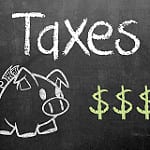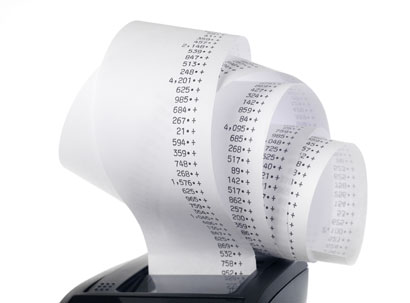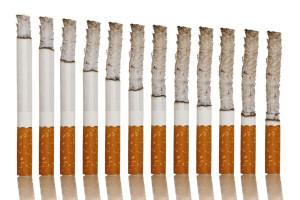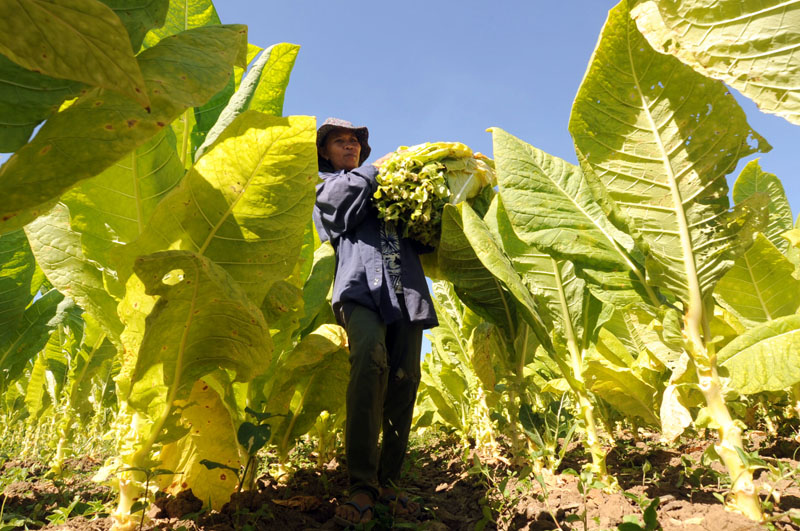‘Various civil society groups and other vulnerable sectors’ in the Philippines have appealed to the Senate to ensure the passage of the Universal Health Care (UHC) law that would pave the way for higher tobacco taxes next year, according to a story in The Manila Bulletin.
In a joint statement, the anti-tobacco-use groups asked the Senate Ways and Means Committee chairman Senator Sonny Angara to start hearing the bills filed by Senators Manny Pacquiao and JV Ejercito.
“All we want for Christmas is a commitment that the funding gap of the UHC law shall be addressed through higher tobacco tax rates to be passed by our lawmakers as this has been proven to be a successful health and revenue measure,” said New Vois Association of the Philippines (NVAP) president Emer Rojas.
Meanwhile, Jorge Banal, past president of the Federation of Senior Citizens Associations of the Philippines (FSCAP) for the National Capital Region (NCR) and Quezon City, said the proposed measure would help further curb smoking in the country, especially among young people and the elderly. “The tobacco tax proposals can help save at least one million Filipinos from the dangers of tobacco smoking,” said Banal.
And Caloocan PWD Zone Association (CPWDZA) president Nilo delos Reyes, said that having higher tobacco tax rates would mean a better funding source for UHC.
“The UHC is very promising,” said delos Reyes. “It, however, will need sufficient funding, which the tobacco tax revenue can provide, in order to attain its goal to provide better healthcare for all.
Category: Taxation

Better health from smoking

Hypocrisy unmasked
Despite receiving more than $27 billion in the current budget year from the tobacco settlement and tobacco taxes, the US states continue to severely underfund tobacco prevention and cessation programs proven to save lives and money, according to a statement issued by the Campaign for Tobacco-Free Kids on Friday.
‘Since the states settled their lawsuits against the major tobacco companies in 1998, our annual reports have assessed whether the states are keeping their promise to use a significant portion of their settlement funds – estimated at $246 billion over the first 25 years – to attack the enormous public health problems caused by tobacco use in the United States,’ the statement said.
‘Despite receiving huge sums from the settlement and collecting billions more in tobacco taxes, the states continue to short-change tobacco prevention and cessation programs that are proven to save lives and reduce health care costs.
‘In the current budget year, Fiscal Year 2019, the states will collect $27.3 billion from the settlement and taxes. But they will spend just 2.4 percent of it – $655 million – on programs to prevent kids from smoking and help smokers quit.
‘Meanwhile, tobacco companies spend $9.5 billion a year – $1 million every hour – to market their deadly and addictive products. This means tobacco companies spend $14 to market their products for every $1 the states spend to reduce tobacco use.
‘Our report challenges states to do more to fight tobacco use – still the nation’s No. 1 cause of preventable death and disease – to accelerate progress, address large disparities in who still smokes, and confront the growing epidemic of youth e-cigarette use in America.
‘This report is issued by the Campaign for Tobacco-Free Kids, American Heart Association, American Cancer Society Cancer Action Network, American Lung Association, Robert Wood Johnson Foundation, Americans for Non-smokers’ Rights and Truth Initiative.’
Quitting off target
Another 17,200 New Zealanders need to quit tobacco smoking each year until 2025 if the country is to reach its goal of having under five percent of the population smoking daily by then, according to a story by Amy Wiggins at nzherald.co.nz, citing the results of a new study.
The 17,200 figure is more than double the current quit rate, the study, published in Friday’s New Zealand Medical Journal, reported.
The research, headed by Professor Nick Wilson of the department of public health at Otago University’s Wellington campus, found the country was set to fall far short of the Smoke-free Aotearoa 2025 goal if the current trend continues.
It was estimated that, in line with the current trend, 17.4 percent of Māori and 7.2 percent of non-Māori people would be smoking in 2025.
To reach the 2025 target, it would be necessary to increase the number of long-term quitters by an average of 8,400 in the case of Māori and 8,800 in the case of non-Māori.
The authors estimated Quitline and funded face-to-face smoking cessation services helped 8,100 people quit each year – 2,000 Māori and 6,100 non-Māori.
That was 19 percent of the Māori quitters and 34 percent of the non-Māori quitters needed each year to reach the 2025 goal.
Based on these figures, the authors concluded that an unrealistically large increase in the use of cessation services would be needed to meet the target; so other strategies were needed.
They proposed the continuation of large tax increases on tobacco, extra funding for cessation services and advertising campaigns, and subsidies to help people switch to electronic cigarettes.
Taxes reflect risk
Malaysia’s Customs Department is considering the tax status of heat-not-burn products, according to a story in The Sun Daily.
“We are still studying this as the product is new,” the Department’s director-general Datuk Seri Subromaniam Tholasy was quoted as saying.
The director-general was responding to a query from the Sun Daily as to whether IQOS should be subject to tax in line with the Government’s aim of reducing tobacco consumption.
“There is already excise duty on the tobacco. As for the device, it is an issue of classification.”
“That device is an electronic gadget,” he said. “Classification of a product is something international and we will need to consult the World Customs Organization and other countries.
“However, we are open to the idea and will further study this.”
The Sun said that IQOS retailed mainly in vape stores and upmarket tobacco dealers, at between RM260 and RM600, depending on what accessories were included.
The IQOs device’s Heets tobacco sticks, which were also available at gas filling stations and convenience stores, retailed for RM14.00 for a pack of 20. A pack of premium combustible cigarettes sold at RM17.40.
The excise duty on each stick of Heets, about 24 sen, was about 40 percent lower than that on a regular cigarette, 40 sen.
Taxing problem in Pakistan
Multinational tobacco companies are flourishing at the expense of Pakistan’s economic interests because of flaws in the country’s taxation mechanism and an absence of suitable laws to regulate the way these companies function, according to a story in Pakistan Today quoting ‘sources’.
Looking at multinational companies more widely, the story said that a lack of governmental oversight and ineffective regulatory checks had allowed the Pakistan operations of these companies to exploit the existing situation and enjoy ‘mega corporate benefits beyond imagination’.
In recent years, the story said, Philip Morris (Pakistan) Limited (PMPKL) had used losses of millions of rupees to justify the large-scale downsizing of its staff and the closure of its factories.
However, after the introduction of a ‘highly controversial’ third-tier tax slab by the former government in the fiscal year 2017-18, PMPKL had shown a profit of Rs724.14 million in the first half of this year ending on June 30, 2018.
During the same period of last year, PMPKL had recorded a loss of Rs463.45 million.
The story said that the introduction of the third-tier tax slab had benefitted the tobacco companies without doing any good to national revenues, though it quoted a Philip Morris International results commentary that seemed to dispute this.
According to the story, a PMI quarterly report for the third quarter ended September 30, the company’s gross turnover increased by 25 percent on that of the same period of 2017, mainly because of the normalization of trade inventory movements and partial recovery of sales volumes after the introduction of the third excise tax tier in the 2017/18 federal budget.
The company had recorded an operating profit before tax of Rs1,194 million for the nine months period ended September 30, up from Rs391 million for the same period of 2017.
During the period ended September 30, the company’s contribution to the national exchequer, in respect of excise duty, sales tax, and other government levies, was Rs13,648 million, up from Rs11,429 million during the same period of 2017. PMI was quoted as saying that the third excise tax tier had provided a wider and more sustainable base for the growth of government revenues, which would have otherwise seen a significant decline.
The introduction of the third excise tier was said to have arrested the growth of non-tax paid cigarette segment by narrowing the price gap between tax paid and non-tax paid cigarettes.
However, the Finance Supplementary Bill (September 18, 2018) had imposed a 46 percent increase in the excise rates for the third excise tier, which had led to a tax-driven price increase that had again widened the price gap between the tax paid and non-tax paid cigarettes.
Turkey steps up campaign
Turkey is to require that tobacco products are sold in standardized packaging from next year, according to a Daily Sabah story.
A law mandating such packaging came into force yesterday.
Under the law, starting in 2019, cigarettes and other tobacco products must be sold in standardized packaging with large health warnings and the brand name shown on only one face.
The law bans the use or promotion of tobacco products on television, in television series, films, music videos, films screened in cinemas or during theater performances, on social media and other Internet venues.
The sale of tobacco products in facilities where health and education services are offered, such as universities, is banned also.
Turkey already banned smoking in indoor public places, including restaurants, bars, cafés and similar establishments, and in outdoor places, including stadiums, mosque courtyards and hospitals.
It has imposed higher taxes on cigarettes and provided free medicine and ‘treatment’ for smokers.
However, the authorities have some way to go to meet their target of stamping out smoking.
The incidence of smoking in the country fell from 32.5 percent in 2014 to 31.6 percent in 2016, the last year for which data is available.
Last summer, the government introduced its 2018-2023 action plan for tobacco control that includes shorter shifts for non-smoking employees and increasing the legal age for buying tobacco products from 18 to 21.
Further, the Daily Sabah story said that companies were to be encouraged to hire non-smoking personnel and that those with non-smoking employees were to be offered tax reductions.
Licit sales in free-fall
An attempt to cut smoking in Iran by raising cigarette taxes seems instead to have encouraged a significant number of smokers to buy illicit products, according to an AzerNews story.
AzerNews reported that the number of cigarettes imported into Iran during the first half of the current fiscal year (March 21-September 22) had dropped to zero, from 1.5 billion during same period of the previous year.
At the same time, the head of the Tobacco Products Manufacturers Exporters and Importers Association Mohammad Reza Tajdar said the Association’s members had experienced a 16 percent cut in production and sale of tobacco products.
By the end of this year, the cut would have reached 30 percent, he said.
Iran’s domestic cigarette production during the first half of the current year was 19.6 billion cigarettes, while production during the same period of last year had been 23.4 billion.
The policy of raising cigarette prices to cut consumption had pushed the country’s cigarette market toward low quality smuggled products.
If this continued, the producing factories would face serious problems in paying salaries.
About 15,000 people are employed in the country’s tobacco industry.
Sales down in South Korea
Cigarette sales in South Korea have been falling this year because of higher prices and a government-led anti-smoking campaign, according to a Xinhua story citing a government report published on Monday.
The Ministry of Strategy and Finance reported that the number of cigarette-packs sold during the first 10 months of this year was down by 1.9 percent on that of the same period of last year.
Cigarette sales fell sharply after January 1, 2015, when the Government imposed a WON2,000 (about US$1.80) per-pack tax rise on cigarettes that increased by about 80 percent to WON4,500 (about $4.10) the price of the average pack of cigarettes.
Since then, sales have risen and fallen, but the general trend has been down.
At the time of the price hike, the Government increased the scope of its public-places smoking bans, and since then has introduced graphic health warnings.
But shortly after the tax-driven price hike, it was reported that at least part of the fall in cigarette sales had been offset by a rise in sales of vaping products, at that time, electronic cigarettes.
Since then, heat-not-burn products have appeared on the market, and sales of these have no doubt reduced cigarette sales.
Despite lower cigarette sales, the Government was said to have collected WON9.7 trillion (US$8.6 billion) in cigarette taxes during the first 10 months of this year, 2.6 percent more than it collected during the same period of last year.
Excise reforms praised
A tobacco company has commended a government for reforms made to tobacco excise.
According to a story in The Post Courier, British American Tobacco PNG has commended the Government of Papua New Guinea and Deputy Prime Minister and Treasurer Charles Abel for introducing positive reforms to the country’s tobacco excise regime.
The reforms, aimed at helping to provide sustainable revenues, were announced on Tuesday as part of the 2019 budget.
In part, the reforms were a step toward clamping down on the rise of untaxed and illicit tobacco products being sold in the country, BAT PNG’s GM Stephanus Duvenage was quoted as saying.
“Illicit tobacco trade has been depriving the country of much needed revenue and has affected the legitimate industry for many years,” Duvenage said.
“These excise reforms announced by the Treasurer will help level the playing field and will enable the legitimate industry to compete against illegal tobacco products which do not pay excise and therefore do not contribute to the PNG economy.”
Duvenage said BAT PNG had been operating and contributing to the PNG economy since 1963.
“The reforms as announced by the Treasurer will ensure companies like BAT PNG continue to contribute and invest in the country for many more years to come,” he said.
“The O’Neill Abel Government has taken meaningful steps to tackle the fight against illicit tobacco and to recover revenue that rightfully belongs to the people of PNG.”
The story did not mention what form the reforms had taken.
Tax plans challenged
A group made up of more than 50,000 tobacco growers in the Philippines has urged the government to reconsider its plan to increase again the excise tax rate on cigarettes, according to a story in The Manila Standard.
The group said the move would further harm the leaf-production industry.
The PhilTobacco Growers Association said in a letter to Finance Secretary Carlos Dominguez III that they were already feeling the adverse impact of the lower demand for tobacco caused by higher excise taxes on tobacco products.
The letter was sent also to the Senate Ways and Means Committee chairman Senator Juan Edgardo Angara, and House Ways and Means Committee chairman Rep. Estrellita Suansing.
The growers said that from P2.72 per pack in 2012 for cheaper cigarettes, the excise tax had now reached P35.00 per pack.
And the latest data from the National Tobacco Administration had shown that tobacco production had declined from 68 million kg in 2013 to 48 million kg in 2017.
The growers said they had been surprised that on top of the tobacco-tax increase of 2013, another had been imposed in 2017. “And now the government is again planning to increase the tax on cigarettes,” they said.
The growers said the proposal by Senator JV Ejercito to set tobacco excise tax at P90 per pack with a nine-percent increase annually would more than double the current tax.
The Department of Health and other sectors are pushing for the increase in excise tax of cigarettes to P90 per pack to fund the Universal Health Care bill.
But the growers said the tobacco industry already contributed billions of pesos yearly to government coffers, citing the Bureau of Internal Revenue’s figures for tobacco tax collections in 2017 that reached over P126 billion.
“Because of that, isn’t it right that we should be given the opportunity to recover?, the farmers asked.
“Isn’t it right that other sectors should also be encouraged to pay higher taxes for them to contribute to economic development?”.








